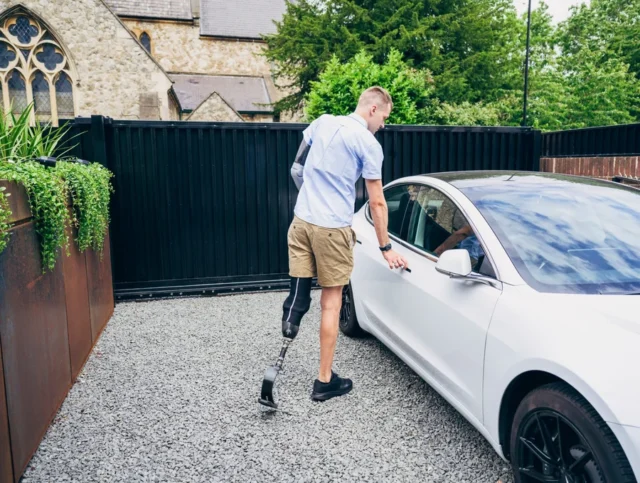Driving with Epilepsy
Epilepsy is a neurological disorder that impacts people’s lives in different ways, one of them being the ability to drive. Driving with epilepsy is a concern for many, primarily due to the unpredictable nature of seizures.
Know the rules
The UK has specific guidelines for people diagnosed with epilepsy who wish to drive. These guidelines are designed to ensure that both the driver with epilepsy and other road users remain safe. A thorough understanding of these rules can help those with epilepsy maintain their independence, while also keeping safety as the utmost priority.
Meeting legal obligations
In the United Kingdom, the DVLA (DVA in Northern Ireland) is the body responsible for issuing driving licences. They have a set of rules tailored for people with epilepsy, and these rules vary depending on the type of seizures experienced by the individual.
For individuals who have seizures that affect consciousness or the ability to act, the DVLA and DVA generally require a period of seizure freedom before they can drive. As per the guidelines updated in November 2022, this period is typically 12 months. However, there can be exceptions. For instance, if a person has only ever had seizures while asleep (nocturnal seizures), they may still be able to drive.
Car drivers who have only ever had nocturnal seizures may be permitted to drive after one year, provided they don’t experience an awake seizure. The driving agency will also consider whether there is a high risk of awake seizures. For bus and lorry drivers the rules are more stringent due to the greater risk involved in driving these larger vehicles.
The role of medical practitioners
Medical practitioners play a pivotal role in helping people with epilepsy manage their condition and adhere to driving regulations. Doctors are responsible for providing appropriate advice about driving with epilepsy and must report any concerns to the DVLA or DVA if they believe a person’s condition may affect their ability to drive safely.
While the responsibility to inform the DVLA of their condition ultimately lies with the person with epilepsy, doctors should ensure their patients are well-informed about the potential implications of not doing so.
The consequences of non-compliance
The implications of non-compliance with these regulations can be severe. Those who fail to inform the DVLA or DVA about their condition may face a fine and could be prosecuted if they are involved in an accident as a result of their epilepsy.
People with epilepsy must ensure they take their responsibility seriously. By following the guidelines, drivers with epilepsy can maintain their independence and enjoy the freedom of being on the open road, while ensuring the safety of themselves and others.
Other steps
In addition to following the driving regulations, there are several practical measures that people with epilepsy can take to enhance their safety on the road.
These include maintaining a consistent sleep schedule, taking prescribed medications regularly and as directed, attending regular medical check-ups, managing stress levels and avoiding alcohol and recreational drugs that may interact negatively with epilepsy medications.
Living and driving with epilepsy
Despite the potential challenges, many people with epilepsy lead full and active lives, including the ability to drive. By working closely with their healthcare team, understanding the rules set out by the relevant driving agency and adhering to their prescribed treatment plans, people with epilepsy can navigate the road confidently.
Driving with epilepsy is possible and, with careful management and adherence to the guidelines, individuals with this condition can continue to enjoy the freedom that driving provides. The most important thing is to ensure that individuals are well-informed, responsible, and proactive in managing their condition.
More like this

Accessible travel
The Best Cars Currently Available On The Motability Scheme
The Motability Scheme is fantastic for disabled people, providing them with the opportunity to lease a brand-new car using their qualifying Mobility Allowance. With so many…

Accessible travel
The Future of Electric WAVs: Overcoming Challenges & Embracing Accessibility
Discover the challenges of Electric Wheelchair Accessible Vehicles (eWAVs) and how our innovative adaptations are paving the way for accessible EVs today. Explore our insights into…

Driving with adaptations
Cost-Effective and Reliable Driving Aids for Amputees: Our Recommendations
Life after limb loss and amputation doesn’t have to mean the end of driving. Although it can affect your mobility and driving ability, there are a…